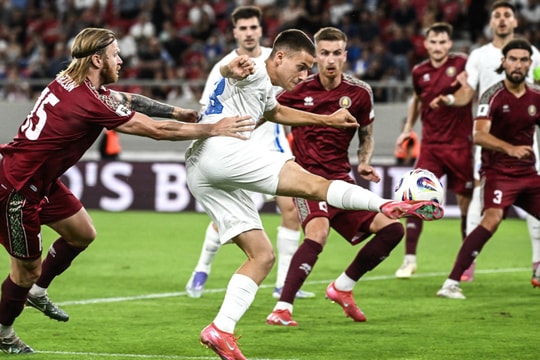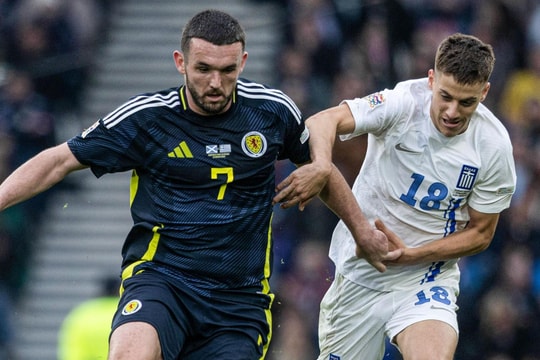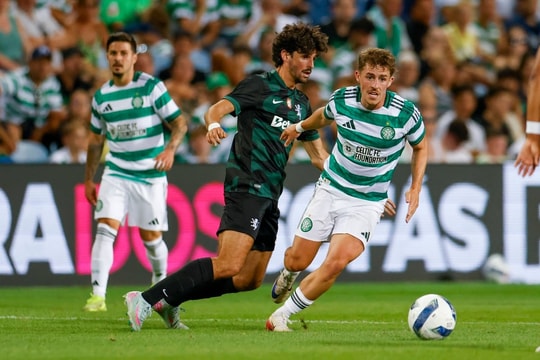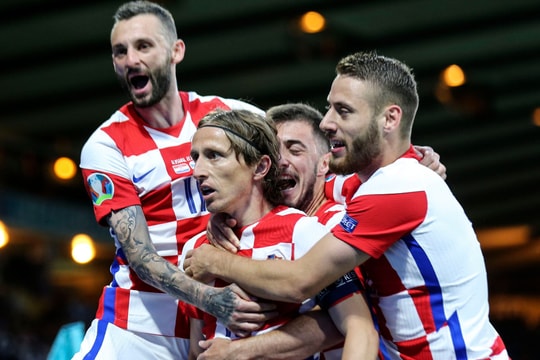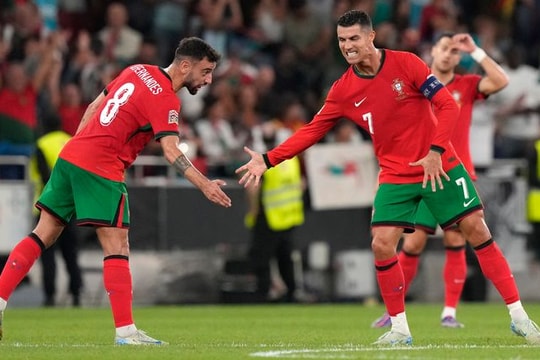Scotland lost 2-3 to Greece but still has a chance to get a World Cup ticket
Losing 2-3 to Greece in Piraeus, Scotland still has the right to decide thanks to Denmark's 2-2 draw with Belarus in Copenhagen; they only need to beat Denmark at Hampden at 02:45 on November 19 to secure a direct ticket to the 2026 World Cup.
Scotland lost 2-3 to Greece in Piraeus but the door to the 2026 World Cup remains wide open after Denmark drew 2-2 with Belarus in Copenhagen. The scenario reversed just minutes after the final whistle: if Scotland beat Denmark at Hampden at 02:45 on 19 November, they will qualify directly for the finals.
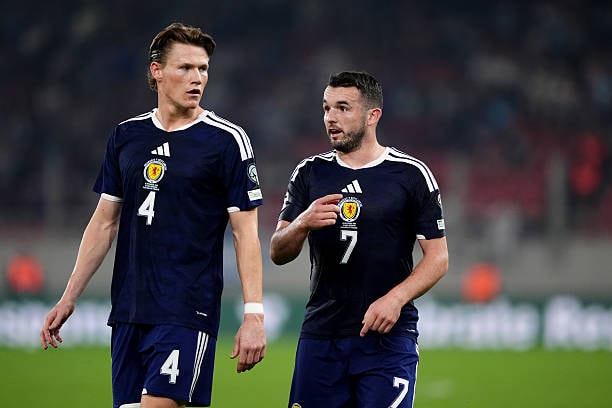
Double climax in Piraeus and Copenhagen
In the first hour, all the signs were against Scotland: Greece led 3-0, while Denmark opened the score 1-0 against Belarus. The balance was settled: a direct ticket out of reach, a play-off the most likely scenario.
Then the first shock came at Parken: Belarus made it 1-1. A few minutes later, Ben Doak made it 1-3 for Scotland. The energy returned to the Tartan Army area at Karaiskakis. When Belarus suddenly went 2-1 up, Ryan Christie headed home to make it 2-3 in Piraeus, sending the atmosphere into a frenzy.
Scotland still had a breath to complete their escape. Scott McTominay almost made it 3-3 but was denied by a brilliant save from Odysseas Vlachodimos. Bakasetas was sent off, the pressure mounted from the visitors. In the breathless moment waiting for news from Copenhagen, Denmark equalised 2-2. The Scotland players stood on the pitch, waiting for Parken to say the final word – and when the draw was confirmed, joy came.
“It’s Hampden,” Andy Robertson shouted. Rarely has defeat been accompanied by such a sense of release.
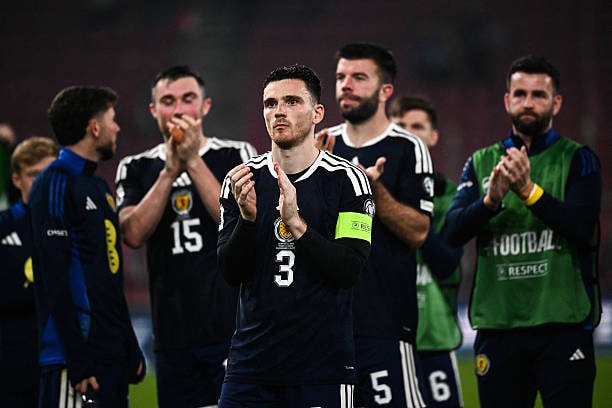
Tactical analysis: 70 minutes of off-beat, 20 minutes of explosive play
Before the 60th minute, Greece were completely dominant. Scotland’s defense was disjointed, lacking connection between the center backs and the defensive midfielders, leaving too many gaps for Karetsas and Tzolis to exploit. Grant Hanley and John Souttar were constantly pulled out of position by the opponents’ clever movements, leading to a chain of errors.
The numbers speak for themselves: Scotland’s defence conceded six shots on target in the first half – their worst tally in almost a decade. It reflected not just the duels lost but also organisational issues: inconsistent defensive depth, stretched lines, and slow reaction to changes of attack.
Drop point varies from intensity
As the game seemed to be winding down, Scotland increased the tempo and intensity of their battles. Second balls were recovered more often, and flank attacks had a clear rhythm in approaching the penalty area. From there, Ben Doak created a goal to reduce the score to 1-3, rekindling hope. Not long after, Ryan Christie cut in, beat the Greek defence with a header past the goalkeeper – and the chaos left the hosts flustered.
It was a quality 20 minutes: stronger, more determined, more incisive – as manager Steve Clarke insisted. But paradoxically, the bigger question lies in the previous 70 minutes, where Scotland lost both structure and confidence.
Post-match reaction: between luck and bravery
When asked about such a crazy night, Steve Clarke just smiled: “Too much.” He admitted that luck had smiled on him, but also defended his students thanks to the late acceleration – a positive sign before the decisive appointment.
From a psychological perspective, the sequence of events between Piraeus and Copenhagen was like an adrenaline shock. From a state of despair, Scotland were rescued by Belarus at the right time – and importantly, the team responded with a sharp press to put themselves back on the competitive track.
The impact of the situation: self-determination at Hampden
Thanks to Denmark’s 2-2 draw with Belarus, Scotland are back in the driver’s seat. The math is now simple and brutal: beat Denmark at Hampden at 02:45 on 19 November and go straight to the 2026 World Cup. There are no other miracles to be called for – everything depends on the next 90 minutes.


